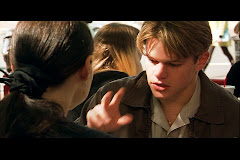In seminary we learn a whole lot of fun terminology
that only theologians use! One of my personal favorites is “substitutionary
atonement.” It basically boils down to the concept that because Jesus died for
our sins we have been saved that horrible punishment – that we are rescued. But
on this resurrection day, I would like to push back on that concept a bit.

It is not so much that I am contending that Jesus
did not die for us, but rather the belief that it saved us from death or was
the source of our forgiveness. Now before you brand me a heretic, let me
explain. We are already and have always been forgiven. God – who is love
– has caused that from the beginning. It was one of Jesus’ main messages;
he was continually saying that we are forgiven. In healing an illness or human
error, no matter how egregious, his proclamation was, “you are forgiven; go and
sin no more.” That is the given condition with God – you are forgiven; you are
loved and accepted, just the way you are. It did not take the crucifixion
to get that grace. Furthermore, since we have come from God and will return to
God in our passing, we have that as a given from the very beginning of time –
we are already, always God’s creation and inextricably bound up in the Divine
from the beginning until the end of all time. We may not know what it looks
like, but it is a given. It didn’t take the crucifixion to gain that.
So I don’t celebrate Jesus life and death because of substitutionary
atonement. In fact, I don’t really call it a celebration, personally,
because it scares me to no end. You see, the other message Jesus was
always preaching (along with love and forgiveness) was that we were to “follow”
him. What? To the cross?
Yes.
All the way there and beyond. The crucifixion of Jesus is a total game-changer.
In all my studies (I am a life-long student still in college in my 60’s) I have
found that there are only two things that have to power to transform human
beings: unconditional love and extreme suffering. Loving unconditionally
(that is, because you choose to love not because of the other person’s
“worthiness” of love) we are turned inside-out. It is perhaps the hardest thing
in life to do – to BE love. And that other
thing – the suffering thing – well we all know that it changes everything; if
and when we survive it! And in one fell swoop, Jesus, this man who said
“follow me,” did both of those things: He loved (not just us, or his friends
and family, but even those who were in the process of killing him) completely
and unconditionally, so much so that he was willing to suffer the ultimate
suffering to make that point.
But
he did not do that so that we did not have to. He did it as he did
everything, so that we would know the path to transformation. And this
new way of being – on the other side of the death of substitutionary atonement
– is what we might call true Christianity; loving in a way that heals the
hurts, in a way that bridges the gaps, and in a way that pulls everyone into
the fold, irrespective of their human condition, skin color, religion,
sexuality or politic. It is why I cry every Good Friday – not because
Jesus died, but because I am called to go down that same path, and there is no
escape clause!
 First of all, I have a problem with what most people think of when they hear the word prayer. It seems to me that we mostly think of prayer as a way of talking with or to god, I remember learning in
First of all, I have a problem with what most people think of when they hear the word prayer. It seems to me that we mostly think of prayer as a way of talking with or to god, I remember learning in 






.jpg)


